Rallying wasn’t on Enzo Ferrari’s radar, but it was for Giuliano Michelotto. From 1977, the young Paduan engineer had his heart set on turning the latest Ferrari 308 GTB into a terrain-trampling thoroughbred, pitching it against the dominant Lancia Stratos, several of which he had incidentally prepared himself. Allegedly he received clandestine support from factory engineers, many of whom put in countless hours and sleepless nights sorting the new car. Weighing a scant 900kg and powered by a shrieking 300HP V8 (a rarity in rallying), the 308 GTB quickly earned success on the European stages. As il Commendatore slowly came round to the idea of a Ferrari rally car, so the enduring relationship with Michelotto began.
15,000km

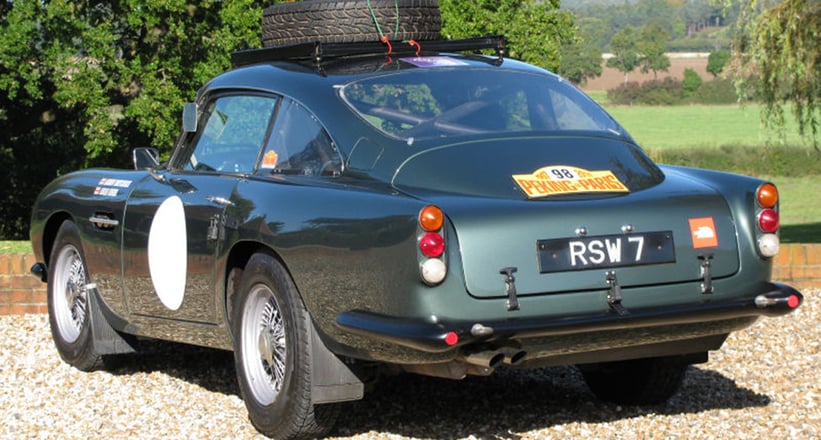
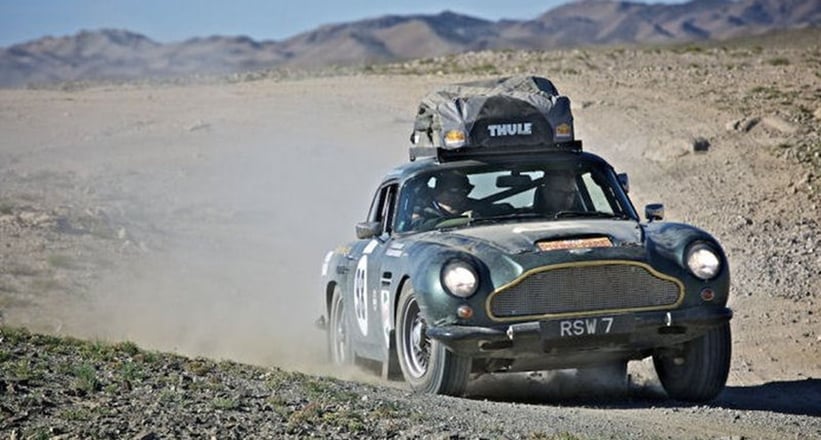
You might think contesting the gruelling 15,000km Peking to Paris endurance rally in a 1939 Bentley 4¼ Litre saloon a bit crazy but, with strict eligibility criteria, it’s actually the ideal car for the job. Well, with several modifications, that is. For the 2013 rally, guard shields were added underneath this car to protect the fuel tank and the drivetrain, and the engine, electrical systems, brakes and suspension were all overhauled to make the car as robust and reliable as possible. Suffice to say, the car made it to the finish in Paris. Bravo. Another surprising entry into the Peking to Paris was the Aston Martin DB5, prepared in the mid-90s by specialist R.S. Williams. Modifications included full suspension and brake upgrades, three spare tyres and an internal safe. It entered twice, in 1997 and 2010, impressively finishing both times.
Rolls-Who?
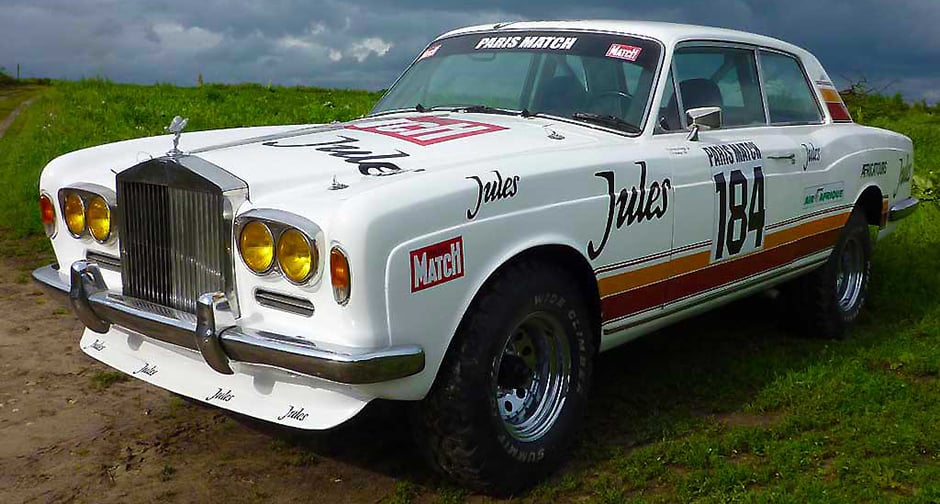
Another car unlikely to receive any authorised factory support was this Rolls-Royce Corniche, though that’s probably more to do with the fact it wasn’t strictly a Rolls. Entered into the 1981 Paris Dakar rally as the result of a drunken dinner bet, this Corniche was Chevy V8-powered, sat on Toyota Land Cruiser axles and weighed 1400kg, considerably lighter than the road car thanks in part to its polyester body and tubular chassis. With Christian Dior’s latest fragrance adorning the bodywork, the car affectionately became known as ‘Jules’.
Bug bitten
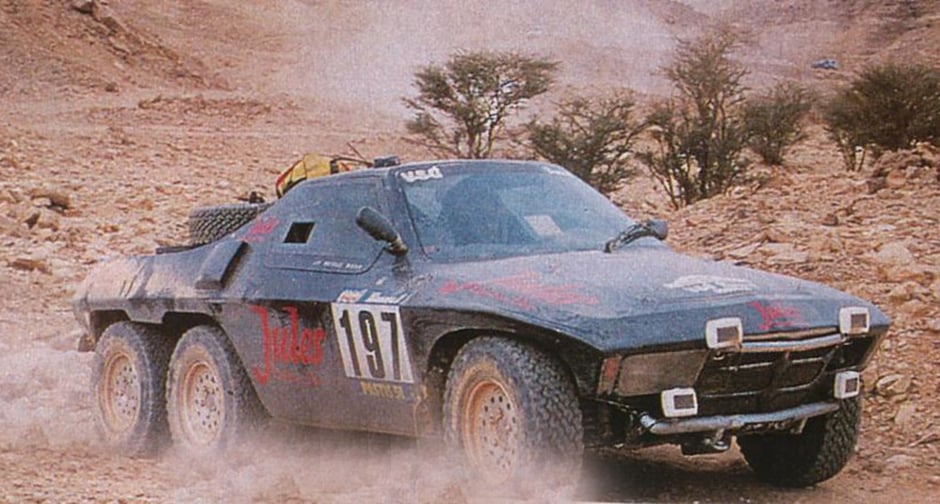
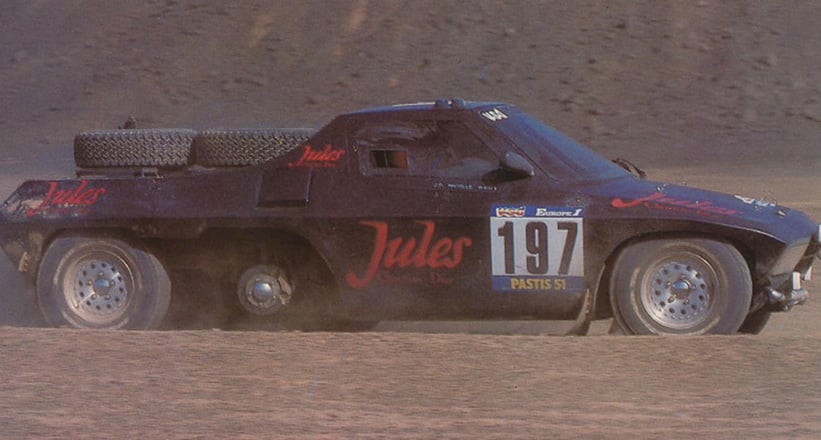
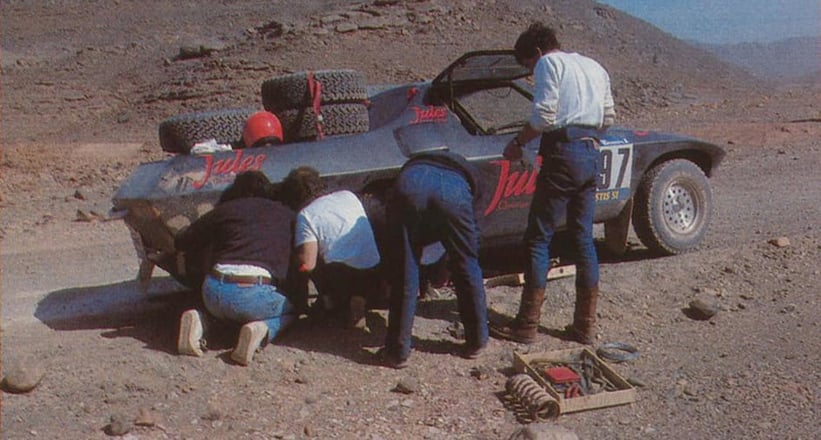
Dior had clearly caught the rallying bug in 1981, as evident in perhaps the most bizarre creation ever to grace the Paris Dakar, the Jules Proto 6x4 Dakar Racer of 1984. It was just as radical mechanically as it was cosmetically, too, boasting a spaceframe, Kevlar-clad chassis, four wheel-drive (the rearmost axle was not powered) and a mid-mounted Chevrolet V8 mated to a Porsche 935 gearbox. Apparently the chassis snapped. Looking at it, we can hardly say we’re surprised.
Wacky racers
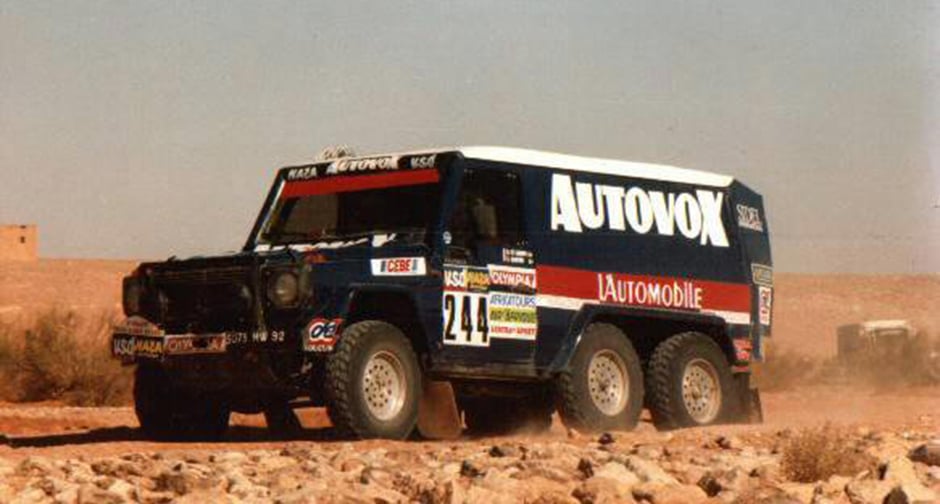
Speaking of six-wheeled contraptions, Frenchman Christian de Leotard used the 1980s Paris-Dakar rallies as a proving ground for his six-wheeled creations, which included wacky interpretations of the Mercedes-Benz G-Wagon, Range Rover, Renault 5 Turbo and Peugeot P4.
'Quick Vic's' vision
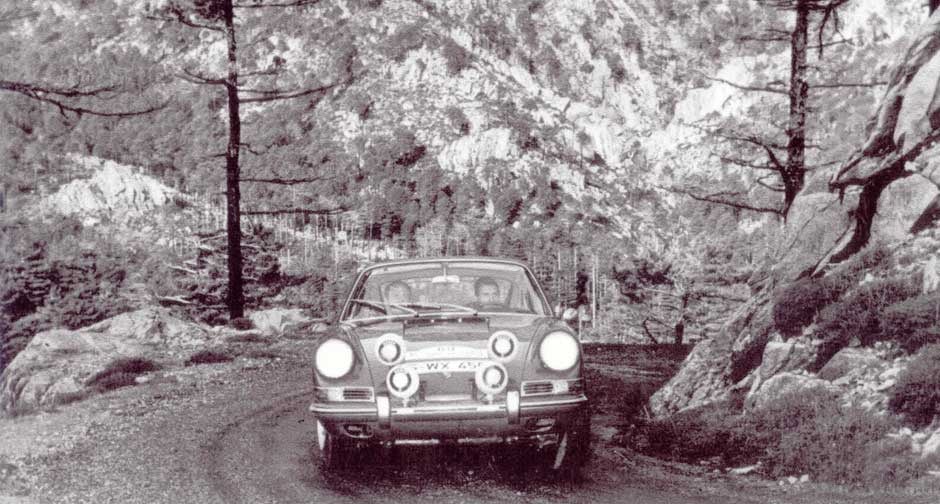
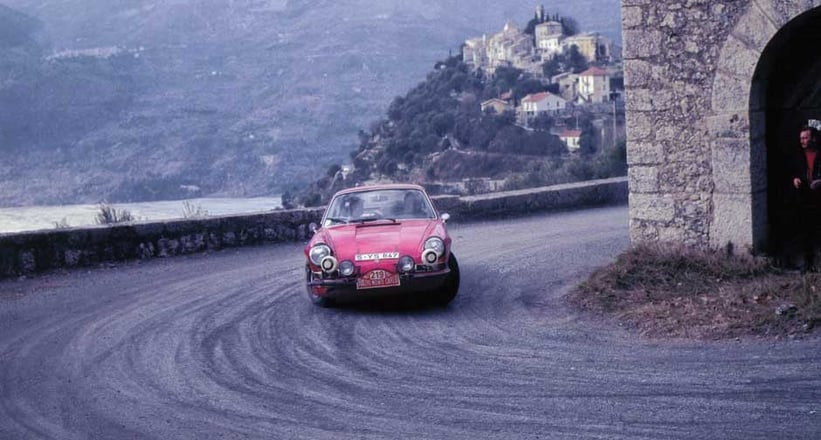
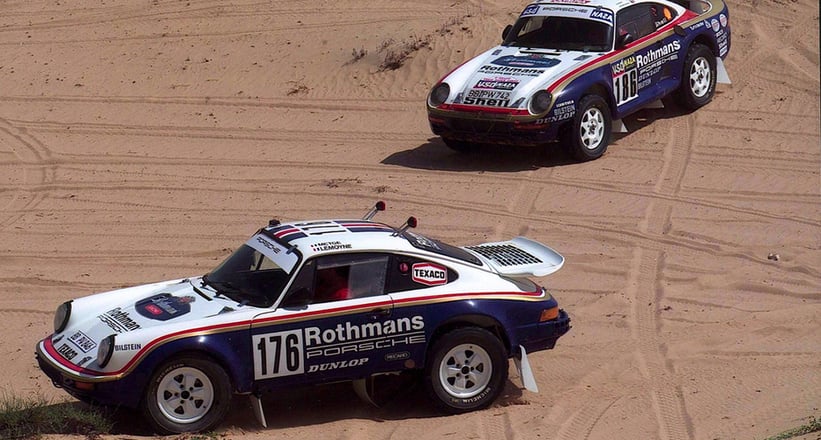
Although the Porsche 911 is now almost as well regarded as a rally car as it is a road-racer (think Rothmans-liveried 953), if it hadn’t been for Vic Elford, that might not be the case. The British racer was adamant that the original rear-engined coupé would be competitive, so single-handedly took a loaned 911 on the 1966 Tour of Corsica and finished an impressive third. This was enough for Porsche to take note and launch a full Works offensive the following year, so beginning the 911’s illustrious rally competition history.
Shorty on a long haul
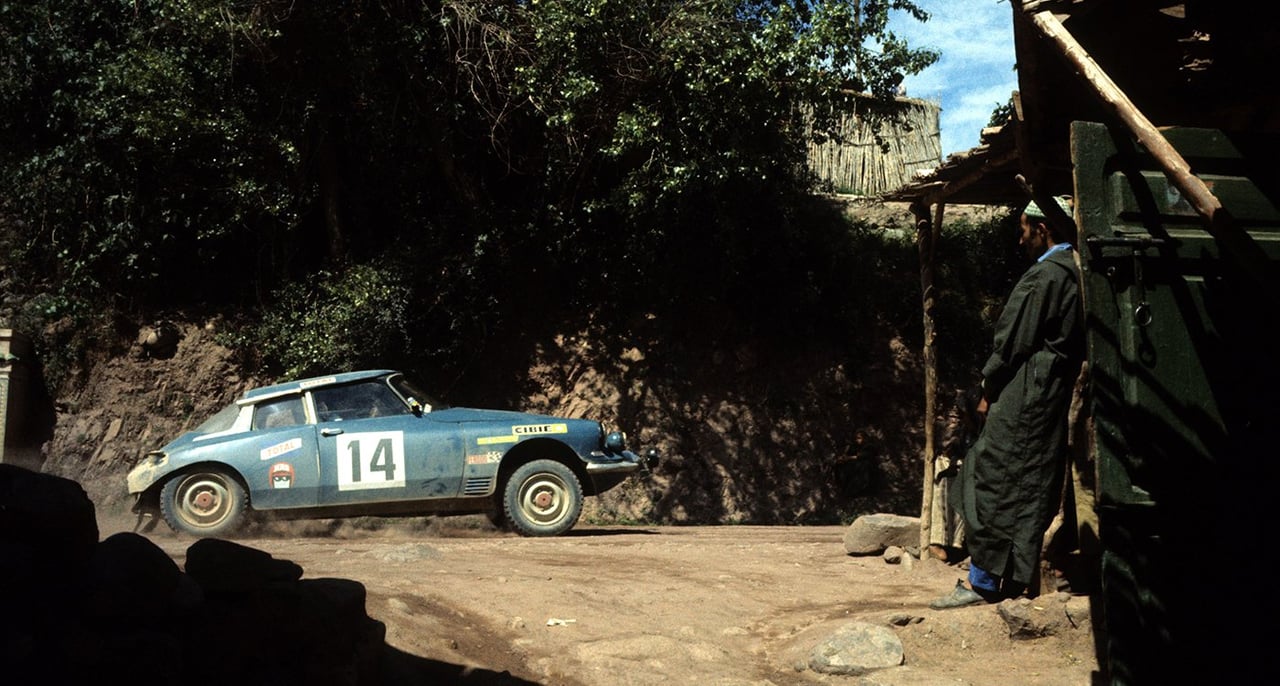
Owing to its advanced hydropneumatic suspension, the Citroën DS was widely used as a tool for rallying. More interesting was the 1969 ‘shorty’ version. Campaigned in the notoriously difficult Rallye du Maroc (where it duly won), the car essentially looked as though it had been chopped in half.











































